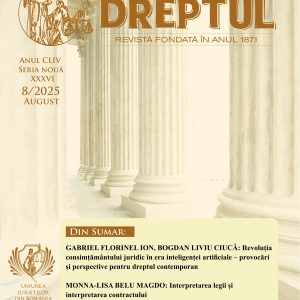-

-
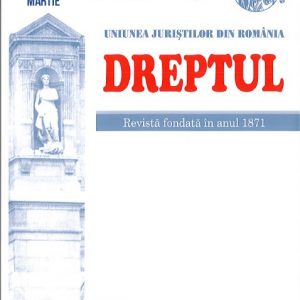 The purpose of the present analysis is to determine the applicable legal regime to certain procedural acts made in bad faith in relation to the abuse of rights theory, and the lis pendens (same trial pending in the same time before two or more panel of judges) and joined cases institutions. The analysis started from a particular case in which a claimant filed two statements of claim having the same object in two considerably distant moments (7 years between them) against the same defendant. The only aspects which the claimant drafted differently in the second case file, in order to eliminate risk of identity, were the claims’ phrasing and some additional arguments in his favour which were not inserted in a proper form in the first case file. Nevertheless, through the second statement of claim, the claimant himself raised the lis pendens exception, in order to send the second case file in front of the initial judge and thus to overcome his incapacity to invoke additional arguments in the first case file. The court vested with the judgment of the lis pendens exception stated that the exception is applicable and in the case at hand. Thus, it has sent the second file to be analyzed together with the initial statement of claim. In addition to this, the court fined the claimant for misconduct represented by filing intentionally the two statement of claims having the same object. In consequence, in the present article we have analyzed the conditions to be met in order to state the presence of an abuse of rights in the light of the lis pendens and joined cases institutions. We have identified the purpose for the regulation of these legal institutions and the similarities and differences between them. In addition to this, we addressed the conduct which the court should have in order to correctly analyze the two statements of claim which are object of the lis pendens exception. Finally, our theoretical conclusions related to the three institutions were applied to our particular case, in order to prove the presence of an abuse of right.
The purpose of the present analysis is to determine the applicable legal regime to certain procedural acts made in bad faith in relation to the abuse of rights theory, and the lis pendens (same trial pending in the same time before two or more panel of judges) and joined cases institutions. The analysis started from a particular case in which a claimant filed two statements of claim having the same object in two considerably distant moments (7 years between them) against the same defendant. The only aspects which the claimant drafted differently in the second case file, in order to eliminate risk of identity, were the claims’ phrasing and some additional arguments in his favour which were not inserted in a proper form in the first case file. Nevertheless, through the second statement of claim, the claimant himself raised the lis pendens exception, in order to send the second case file in front of the initial judge and thus to overcome his incapacity to invoke additional arguments in the first case file. The court vested with the judgment of the lis pendens exception stated that the exception is applicable and in the case at hand. Thus, it has sent the second file to be analyzed together with the initial statement of claim. In addition to this, the court fined the claimant for misconduct represented by filing intentionally the two statement of claims having the same object. In consequence, in the present article we have analyzed the conditions to be met in order to state the presence of an abuse of rights in the light of the lis pendens and joined cases institutions. We have identified the purpose for the regulation of these legal institutions and the similarities and differences between them. In addition to this, we addressed the conduct which the court should have in order to correctly analyze the two statements of claim which are object of the lis pendens exception. Finally, our theoretical conclusions related to the three institutions were applied to our particular case, in order to prove the presence of an abuse of right. -
 The author provides detailed analysis of the legal content of the offense of abuse of office as stipulated for in Art. 297 of the new Criminal Code. He examines the object of criminal protection, the subjects of offense, the objective and subjective sides, the forms, methods, sanctions and certain procedural aspects relating to the offense provided for in Art. 297 of the new Criminal Code. Also, the author does not hesitate to express his views regarding the constituent content of this criminal offense, its systematization, and its nature and to advance certain solutions and ideas of his own in this regard. Last but not least, certain personal views about the concept of subsidiarity, and the law applicable in the event of transitional situations are also promoted.
The author provides detailed analysis of the legal content of the offense of abuse of office as stipulated for in Art. 297 of the new Criminal Code. He examines the object of criminal protection, the subjects of offense, the objective and subjective sides, the forms, methods, sanctions and certain procedural aspects relating to the offense provided for in Art. 297 of the new Criminal Code. Also, the author does not hesitate to express his views regarding the constituent content of this criminal offense, its systematization, and its nature and to advance certain solutions and ideas of his own in this regard. Last but not least, certain personal views about the concept of subsidiarity, and the law applicable in the event of transitional situations are also promoted. -
 The authors present another opinion on the subject regulated by Article 132 of the Law No 78/2000, arguing that it constitutes a special legal aggravating circumstance for the offences of abuse of office and usurpation of the function provided by Article 297 and Article 300 of the Criminal Code. In the current regulation the abuse of office provided by Article 297 of the Criminal Code by reference to Article 132 of the Law No 78/2000 is not a criminal offence assimilated to corruption offences and, consequently, may not fall within the competence of the NAD unless the damage caused exceeds the ROL equivalent of one million euros. Drawing attention to the fact that the provisions of Article 132 of the Law No 78/2000 are not precise, predictable, they bring arguments in support of the thesis of the susceptibility of unconstitutionality thereof.
The authors present another opinion on the subject regulated by Article 132 of the Law No 78/2000, arguing that it constitutes a special legal aggravating circumstance for the offences of abuse of office and usurpation of the function provided by Article 297 and Article 300 of the Criminal Code. In the current regulation the abuse of office provided by Article 297 of the Criminal Code by reference to Article 132 of the Law No 78/2000 is not a criminal offence assimilated to corruption offences and, consequently, may not fall within the competence of the NAD unless the damage caused exceeds the ROL equivalent of one million euros. Drawing attention to the fact that the provisions of Article 132 of the Law No 78/2000 are not precise, predictable, they bring arguments in support of the thesis of the susceptibility of unconstitutionality thereof. -
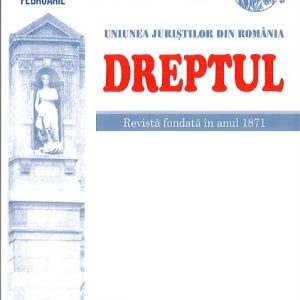 Prin Rechizitoriul din data de 18 octombrie 2013, procurorul din cadrul Parchetului de pe lângă Înalta Curte de Casație și Justiție – Secția de Combatere a Infracțiunilor Conexe Infracțiunilor de Corupție a dispus trimiterea în judecată a inculpaților: M.J. pentru săvârșirea infracțiunii prevăzute și pedepsite de art. 132 din Legea nr. 78/2000 raportat la art. 248 C.pen. 1969, P.C. pentru complicitate la săvârșirea infracțiunii prevăzute și pedepsite de art. 132 din Legea nr. 78/2000 raportat la art. 248 C.pen. 1969 și Z.P. pentru complicitate la săvârșirea infracțiunii prevăzute și pedepsite de art. 132 din Legea nr. 78/2000 raportat la art. 248 C.pen. 1969.
Prin Rechizitoriul din data de 18 octombrie 2013, procurorul din cadrul Parchetului de pe lângă Înalta Curte de Casație și Justiție – Secția de Combatere a Infracțiunilor Conexe Infracțiunilor de Corupție a dispus trimiterea în judecată a inculpaților: M.J. pentru săvârșirea infracțiunii prevăzute și pedepsite de art. 132 din Legea nr. 78/2000 raportat la art. 248 C.pen. 1969, P.C. pentru complicitate la săvârșirea infracțiunii prevăzute și pedepsite de art. 132 din Legea nr. 78/2000 raportat la art. 248 C.pen. 1969 și Z.P. pentru complicitate la săvârșirea infracțiunii prevăzute și pedepsite de art. 132 din Legea nr. 78/2000 raportat la art. 248 C.pen. 1969. -
 Following the Decisions of the Constitutional Court No 405/2016 and No 392/2017 there are numerous discussions regarding the regulation of the offence of abuse of office, provided by Article 297 (1) of the Criminal Code. The Ministry of Justice has proposed the amendment of Article 297 (1) of the Criminal Code without establishing a value threshold and without the circumstantiation of the injury caused by committing the facts, elements depending on which it can be assessed the incidence or lack of incidence of the criminal law, by ignoring the above-mentioned decisions of the Court. In the public debates organized by the Ministry of Justice different opinions have been expressed in the sense of establishing a derisory threshold of ROL 1 000, in another opinion a threshold of ROL 2 000 000, and in another opinion in the absence of any threshold, without any circumscribing of the offence of abuse of office. In the context of these discussions, we propose the adoption of the regulation of the French Criminal Code in which facts are clearly, precisely and predictably circumscribed.
Following the Decisions of the Constitutional Court No 405/2016 and No 392/2017 there are numerous discussions regarding the regulation of the offence of abuse of office, provided by Article 297 (1) of the Criminal Code. The Ministry of Justice has proposed the amendment of Article 297 (1) of the Criminal Code without establishing a value threshold and without the circumstantiation of the injury caused by committing the facts, elements depending on which it can be assessed the incidence or lack of incidence of the criminal law, by ignoring the above-mentioned decisions of the Court. In the public debates organized by the Ministry of Justice different opinions have been expressed in the sense of establishing a derisory threshold of ROL 1 000, in another opinion a threshold of ROL 2 000 000, and in another opinion in the absence of any threshold, without any circumscribing of the offence of abuse of office. In the context of these discussions, we propose the adoption of the regulation of the French Criminal Code in which facts are clearly, precisely and predictably circumscribed. -
 In this study we are making reference to the acceptance of the bill of exchange in the Republic of Moldova and in Romania. The bill of exchange includes the drawer’s order addressed to the drawee to pay to the holder of the bill of exchange (payee) the amount of money mentioned in the title. This order itself includes only an obligation of the drawer to determine the payment of the amount of money to be made to the beneficiary, as well as a designation of the person (the drawee) which is going to make the payment at maturity. But the obligation to pay the amount of money does not arise from the order given by the drawer, but from the expression of the will of the drawee itself. So only by accepting the order the drawee becomes acceptor, that is debtor of bill of exchange, and will be obliged to pay at maturity the amount of money provided by the bill of exchange. By accepting the bill of exchange, the drawee becomes the principal debtor and, as a consequence, he must be presented with the bill of exchange.
In this study we are making reference to the acceptance of the bill of exchange in the Republic of Moldova and in Romania. The bill of exchange includes the drawer’s order addressed to the drawee to pay to the holder of the bill of exchange (payee) the amount of money mentioned in the title. This order itself includes only an obligation of the drawer to determine the payment of the amount of money to be made to the beneficiary, as well as a designation of the person (the drawee) which is going to make the payment at maturity. But the obligation to pay the amount of money does not arise from the order given by the drawer, but from the expression of the will of the drawee itself. So only by accepting the order the drawee becomes acceptor, that is debtor of bill of exchange, and will be obliged to pay at maturity the amount of money provided by the bill of exchange. By accepting the bill of exchange, the drawee becomes the principal debtor and, as a consequence, he must be presented with the bill of exchange. -
 The new regulation in the civil matter, as represented by Law no. 287/2009 on the Civil Code, adapts quasi-totally the institution of the acceptance of the inheritance. In this context, this study intends to examine the problem of the acceptance of the inheritance, a valence of the law on succession option, in all the matters it comprises, to reveal the novelties brought by Law no. 287/2009 in this matter and to assess their usefulness and opportunity.
The new regulation in the civil matter, as represented by Law no. 287/2009 on the Civil Code, adapts quasi-totally the institution of the acceptance of the inheritance. In this context, this study intends to examine the problem of the acceptance of the inheritance, a valence of the law on succession option, in all the matters it comprises, to reveal the novelties brought by Law no. 287/2009 in this matter and to assess their usefulness and opportunity. -
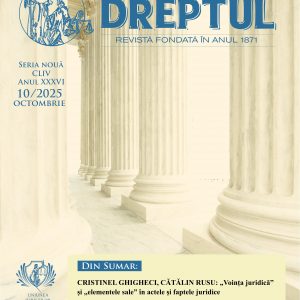
-
 The absolutisation of the effects of the case law of the Court of Justice of the European Union or of the provisions of the Charter of Fundamental Rights of the European Union in areas not falling within the exclusive jurisdiction of the European Union (EU or the Union) or in areas of shared jurisdiction where EU no longer wishes to legislate on the basis of the principles of subsidiarity or proportionality can lead to mistakes in the application of the national law by the law courts of the Member States of EU. In this article the author identifies such a case in the field of access to the data stored by the suppliers of public electronic communications networks and by the suppliers of publicly available electronic communication services and brings arguments to remedy this situation.
The absolutisation of the effects of the case law of the Court of Justice of the European Union or of the provisions of the Charter of Fundamental Rights of the European Union in areas not falling within the exclusive jurisdiction of the European Union (EU or the Union) or in areas of shared jurisdiction where EU no longer wishes to legislate on the basis of the principles of subsidiarity or proportionality can lead to mistakes in the application of the national law by the law courts of the Member States of EU. In this article the author identifies such a case in the field of access to the data stored by the suppliers of public electronic communications networks and by the suppliers of publicly available electronic communication services and brings arguments to remedy this situation. -
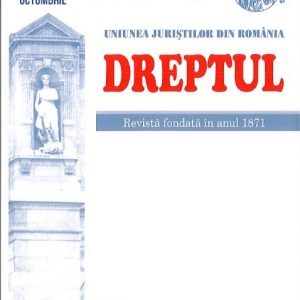 This study deals with the delicate problems of infringement of the provisions of the Constitution of Romania by the norms of the Criminal Procedure Code governing the legal regime of the action in cassation, an extraordinary means of appeal. The author of the study notes that the analyzed norms are not in agreement with the principles written in the Basic Law, invoking in support thereof, for identity of reason, the grounds of the Decision No 485 of 23 June 2015 of the constitutional contentious court.
This study deals with the delicate problems of infringement of the provisions of the Constitution of Romania by the norms of the Criminal Procedure Code governing the legal regime of the action in cassation, an extraordinary means of appeal. The author of the study notes that the analyzed norms are not in agreement with the principles written in the Basic Law, invoking in support thereof, for identity of reason, the grounds of the Decision No 485 of 23 June 2015 of the constitutional contentious court. -
